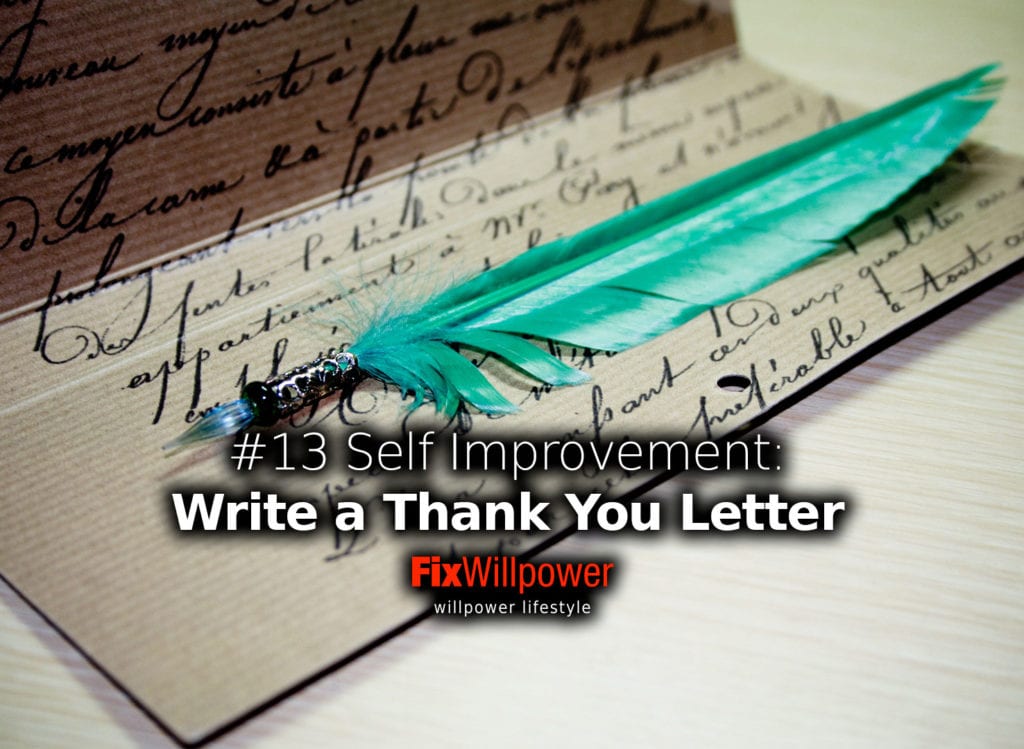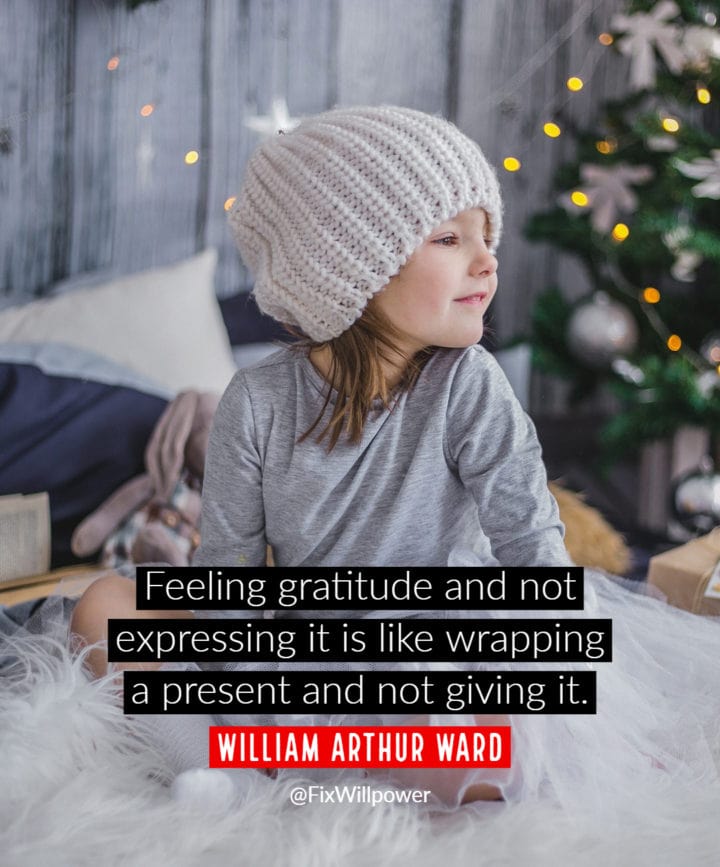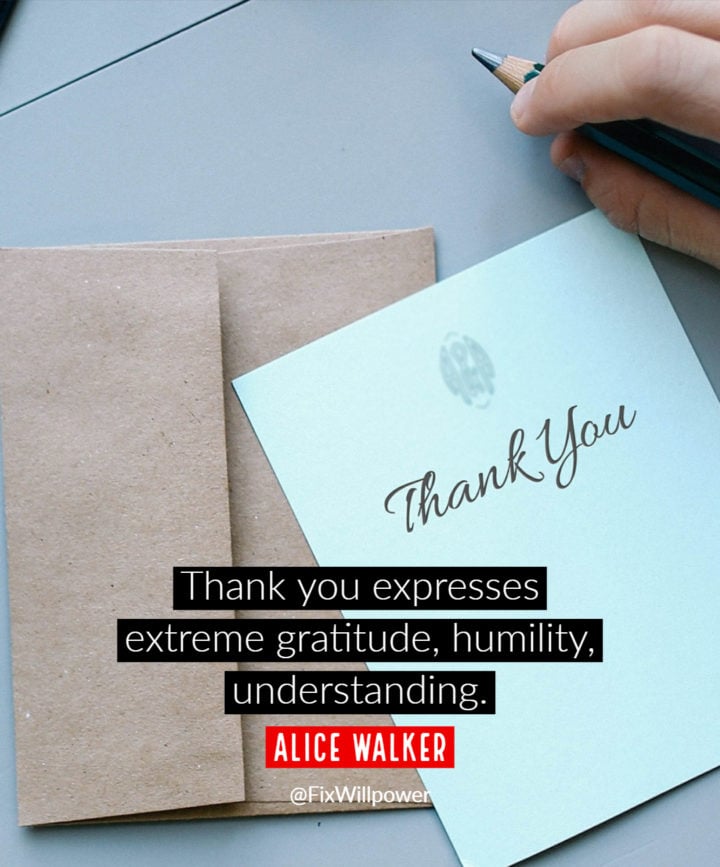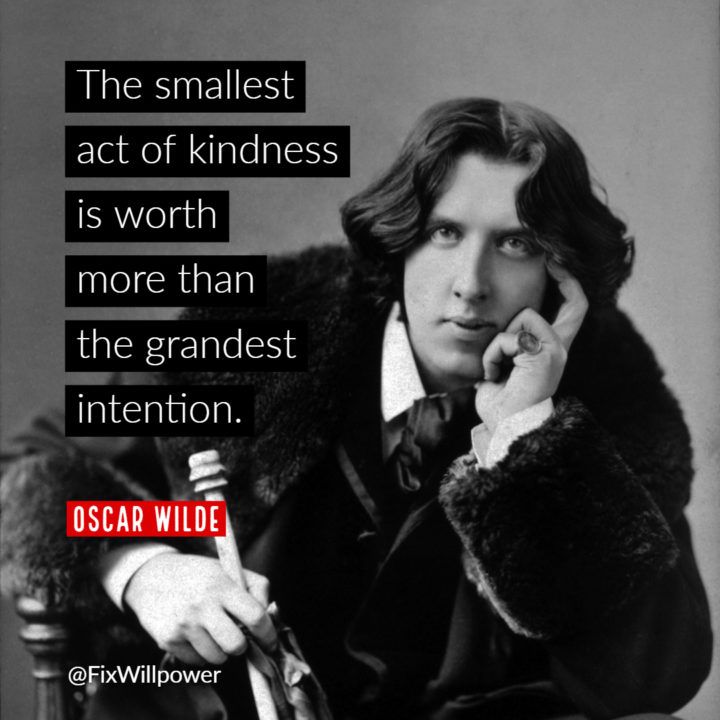You should thank people who help you and improve your life.
So, here goes.

Dear reader,
Thank you for taking the time to click through to FixWillpower website and reading our content. Whether you are here for the first time or the fiftieth, thanks for coming and I hope you find it interesting enough to come back soon.
Being grateful improves your life and the lives of those around you. Research shows that writing letters of gratitude increased participants’ happiness and life satisfaction while decreasing depressive symptoms.
Select someone who has helped you in general, or you want to thank for a specific reason. The thank-you note may be work-related or personal. The key is being sincere and letting the other person know you appreciate their help.
The more specific you can be, the better. As thank you means praise, then make sure you thank for the action and not a thing about the person. Here are some phrases to start your thank you note:
- Thank you for the
- I am grateful for
- I am thankful for
- I appreciate the
You can reserve the most emotional phrases like “thank you so much for your kindness” for special occasions.
The attitude of gratitude improves your life. Read more about how grateful people have more control over their environments, growth, purpose, and self-acceptance.
1. Who should you thank?
Well, everybody! Here are examples of people who may deserve a thank-you letter:
Teacher – Thank you for taking the time to help me understand X. I have a much better grasp on X now.
Parent – Thank you for expanding my world and answering all my questions when I was a curious little kid.
Child – Thank you for giving it your all when tackling a difficult subject in school and powering through.
Doctor – Thank you for taking the extra time to help me understand the X situation and laying out all the options for me.
Boss – I appreciate the time you took to coach me and help solve the problem I had with X.
Friend – Thank you for being there for me. You always cheer me up, and our conversations about X help me become a better me. A physical thank-you letter to a friend for always being there would be remembered for a long time.
Co-worker – I’m happy you are there every day to support and encourage me when I need it. Especially the last time you helped me out with X.
Partner – Thanks for taking care of all the things that make my life better. When you X and Y then I feel much better and less stressed.
Client – This can be a bit more formal, Thank you for giving us this project although there were many other options for you to choose from.

Feeling gratitude and not expressing it is like wrapping a present and not giving it. ~ William Arthur Ward
2. Be as specific and personal as possible
Start with the greeting you would use when you met them right now. Continue by thanking them for the gift, opportunity or deed they have given you.
Always fill the X with something specific. More specific thanks will be received much better. For example:
- Thank you for the opportunity to be interviewed for the position of account manager.
- Thank you for all the great advice you have given me in the last two weeks about how to talk to potential customers.
- Thank you for inviting me to your launch party and introducing me to John Smith, we had a great…
3. What are you grateful for?
Then write how the thing they did helped you in a big or small way. Write down everything you want to let them know. Be as specific as possible. If you are too vague, the thank you letter might lose some of its emotional appeals.
The next part can read something like this:
- The interview gave me a better understanding of your company and the requirements of the position. It made me more interested in the position, and I am really excited to work for you.
- I have had the opportunity to avoid many of the time-consuming mistakes and potentially dangerous situations. I especially remember the “don’t run around with the scissors” advice.
- I had a real pleasure to talk with you. You helped me to connect with Mr. X, and we found a lot of common interests that may lead to a longer relationship.

Thank you expresses extreme gratitude, humility, understanding. ~ Alice Walker
4. Finish with the future in mind
Finally, close with a few lines that leave the channels open for future communications. Add something that may be useful or interesting to the other person. This may be something that shows you will be in touch to return the favor:
- Please let me know what I can do for you. Did you know that you can do X to make your project move faster? I hope we can have a long and beneficial relationship.
- I hope we can meet up around the holidays and I can fill you in about my latest progress at my job as a programmer. Meanwhile, here’s the X I think will make your task easier.
- I will have a fundraiser next month and would love to see you there. I’ll let you know when I confirm the date.
End with a friendly signature and your name. Be careful to consider the details of the thank-you letter.
- Brief
- Friendly
- Warm
- Handwritten (but legible)
Here are some examples of how to sign the note:
- Love
- Warmly
- Friends, always
- Pals forever
- Affectionately
How often should you send a thank-you note?
Do not send thank-you letters to the same person too frequently.
Once a year is OK. Maybe twice? Use the frequency that feels right to you. If you send more than that, it may seem weird.
But don’t worry about being awkward or the recipient not appreciating your thank you note. One study found that:
- people who express thanks significantly underestimated how surprised recipients would be about why expressers were grateful,
- overestimated how awkward recipients would feel, and
- underestimated how positive recipients would feel.

The smallest act of kindness is worth more than the grandest intention. ~ Oscar Wilde
The reason to send the thank-you letter should always be to express gratitude and make the day better for the recipient.
Your “selfish” reason for sending the note would be to keep the communications open and your network alive. Sending a thank-you letter makes you appreciate what others have given you, but it also helps you see what really matters in your life.
You can send the thank-you letter just once, and it’ll make you feel better. However, if you make a habit out of sending thank-you letters, it will improve your happiness in the long term.
Psychological strategies that may enhance feelings of gratitude
- Journaling about things for which to be grateful
- Thinking about someone for whom you are grateful
- Meditating on gratitude (mindfulness, present moment awareness)
- Gratitude journal at the end of the day or week, write down three things for which you are grateful
- Practicing saying “thank you” in a sincere and meaningful way
Thank-you letters include all the benefits listed above.
Handwritten vs. electronic thank-you letter
If at all possible, send a hand-written note.
But it’s not always possible because you don’t know where they will be to receive the letter. In this case, send an electronic message. Email, text message, the direct message in a social network like Facebook, LinkedIn, or any other.
As Oscar Wilde put it the act is more important than the intention.
However, if you put effort into your letter, then your message is much more appreciated.
Do you have 30 people in your life to thank? Most of us probably do. Make a list of people and write one thank you letter every day for the next 30 days.
And of course, say “Thank you!” too, when someone has made your day a little bit better.
Now select the person you want to thank and write the first letter.
_________________________________
Image: Oscar Wilde portrait by Napoleon Sarony
Image: Writing Apparatus by Kaushik Narasimhan
![Read more about the article 5 Steps to Truly Listen to Someone and Understand [VIDEO]](https://fixwillpower.com/wp-content/uploads/truly-listen-429x314.jpg)
![Read more about the article How to Get the Skill of Self-Confidence: Dr. Ivan Joseph [VIDEO]](https://fixwillpower.com/wp-content/uploads/skill-of-self-confidence-ted-429x314.jpg)
![Read more about the article 30-Day Challenge: Simplify Your Day to Become More Productive [VIDEO]](https://fixwillpower.com/wp-content/uploads/30-day-challenge-simplify-your-day-429x314.jpg)
![Read more about the article Why You Need to Smile More to Get Better [VIDEO]](https://fixwillpower.com/wp-content/uploads/smile-more-429x314.jpg)